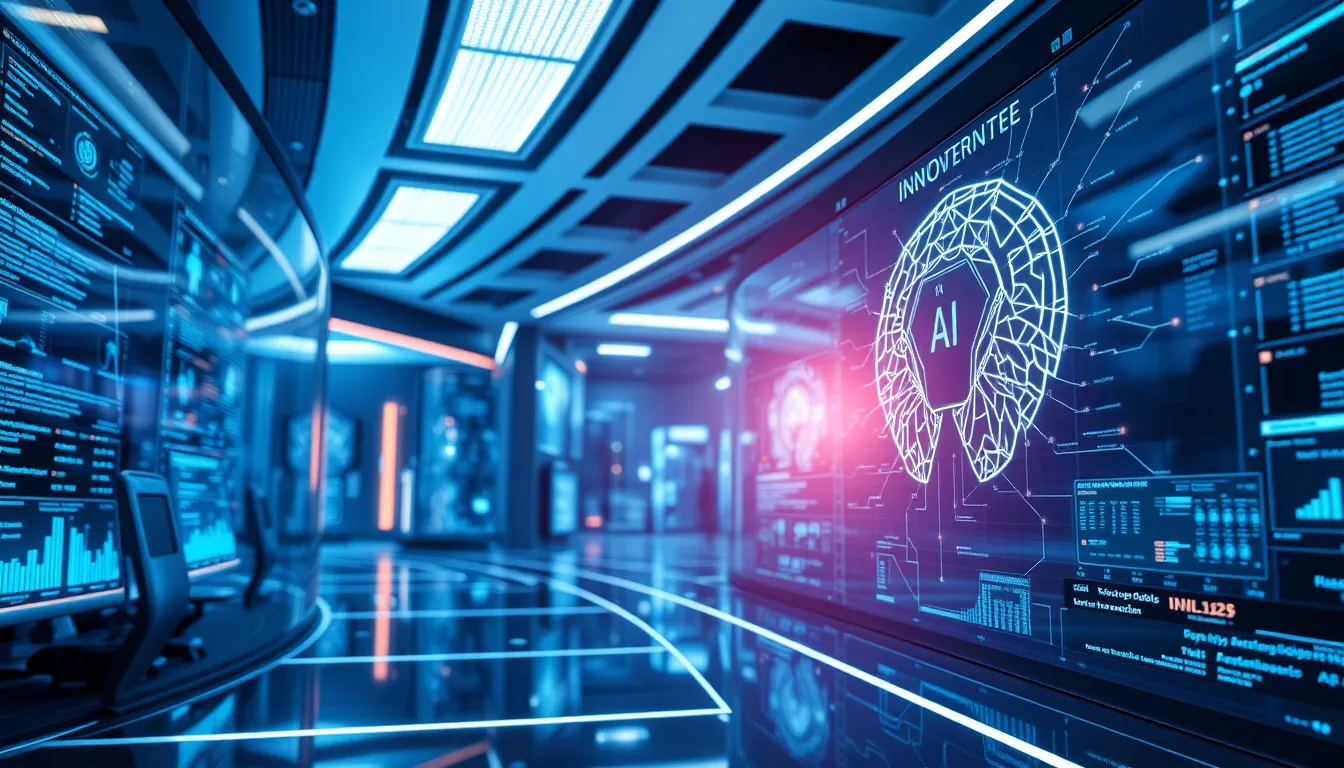Now Reading: Powerful AI in Healthcare Diagnostics: Enhancing Patient Care
-
01
Powerful AI in Healthcare Diagnostics: Enhancing Patient Care
Powerful AI in Healthcare Diagnostics: Enhancing Patient Care

Powerful AI in Healthcare Diagnostics: Enhancing Patient Care
Introduction
Artificial Intelligence is rapidly transforming the healthcare industry. In particular, AI in healthcare diagnostics is driving a revolution in patient care by improving diagnostic accuracy and speeding up the process of disease detection. In this article, we explore the incredible advancements in AI medical imaging, AI disease prediction, and how these technologies are shaping the future of medicine.
Understanding AI in Healthcare Diagnostics
AI in healthcare diagnostics refers to the use of advanced algorithms and machine learning techniques to analyze medical data. This technology is now being used in various areas, including:
- Medical Imaging: AI medical imaging tools analyze X-rays, MRIs, and CT scans to detect abnormalities that may go unnoticed by the human eye.
- Disease Prediction: Algorithms predict the likelihood of developing specific diseases based on historical data and patient history.
- Personalized Treatment Plans: By quickly processing vast amounts of patient data, AI assists physicians in creating tailored treatment plans.
How AI Improves Diagnostic Accuracy
One of the key challenges in healthcare is increasing diagnostic accuracy. Traditional diagnostic methods often fall short due to human error and the overwhelming volume of patient data. Here are some major benefits of integrating AI in diagnostics:
- Enhanced Image Analysis: AI-powered algorithms excel at processing complex imaging data. With AI in healthcare diagnostics, tools now automatically identify irregularities in patient scans with a precision that improves outcomes.
- Faster Processing Time: AI systems can analyze data and generate results in a fraction of the time it takes a human practitioner. This speed is vital in emergency situations where every second counts.
- Predictive Analytics: Leveraging long-tail keywords like “how AI improves diagnostic accuracy,” these systems predict potential health issues before they manifest, allowing for early intervention.
Technological Advances and Practical Applications
Recent technological advances have led to the development of sophisticated diagnostic tools using AI. Here are some of the innovative applications:
- Automated Reporting: AI algorithms help in generating automated reports that summarize patient findings directly from imaging data. This not only saves time but also minimizes errors.
- Integration with Electronic Health Records (EHR): Modern AI systems integrate seamlessly with EHR systems, ensuring that complete and up-to-date patient information is always available.
- Continuous Learning: AI diagnostic tools continuously improve by learning from new data. This means that with every additional patient scan, the system’s predictions become more refined.
Challenges Facing AI in Healthcare
Despite the many benefits, there are also challenges that come with adopting AI in healthcare diagnostics. Some of these challenges include:
- Data Security: Ensuring patient data privacy remains a significant concern. Healthcare providers must adopt stringent cyber security measures to protect sensitive information.
- Integration Issues: Merging new AI technologies with existing healthcare systems can be complex and requires thoughtful planning.
- High Costs: While AI can reduce costs in the long run, the initial investment in technology can be substantial. However, many experts believe that the improved outcomes and efficiency gains justify the expense.
Case Studies and Success Stories
Numerous hospitals around the world have adopted AI in healthcare diagnostics with excellent results. For example, a leading medical center recently implemented an AI-powered medical imaging system that reduced diagnostic errors by 20%. Similarly, another hospital utilized AI in disease prediction, resulting in earlier interventions and better patient outcomes. These successes illustrate how the integration of AI in healthcare is not just a futuristic concept, but a reality actively transforming patient care.
Practical Steps for Implementing AI in Healthcare
For healthcare providers looking to adopt AI technology, here are some practical steps to consider:
- Invest in Training: Ensure that your medical staff is trained in using new AI tools. Familiarity with the technology is crucial for maximizing its benefits.
- Collaborate with Tech Experts: Partner with technology companies that specialize in healthcare AI to develop customized solutions tailored to your facility’s needs.
- Monitor and Evaluate: Continuous evaluation of AI tools is necessary to assess their effectiveness and adjust practices accordingly.
Conclusion
AI in healthcare diagnostics is not just a technological breakthrough; it is a critical tool that is reshaping the future of medicine. From enhancing diagnostic accuracy to streamlining treatment processes, the benefits of AI are evident in every aspect of patient care. As the technology continues to evolve, we can expect even greater advancements that will further improve outcomes and create a more efficient, responsive healthcare system.
For more information on technological advancements in healthcare, please visit authoritative sources such as the American Medical Association or the U.S. Food and Drug Administration.
In summary, embracing AI in healthcare diagnostics opens up a world of possibilities for improved patient care, increased efficiency, and enhanced diagnostic precision. The future of healthcare is bright, and AI is leading the way.

























